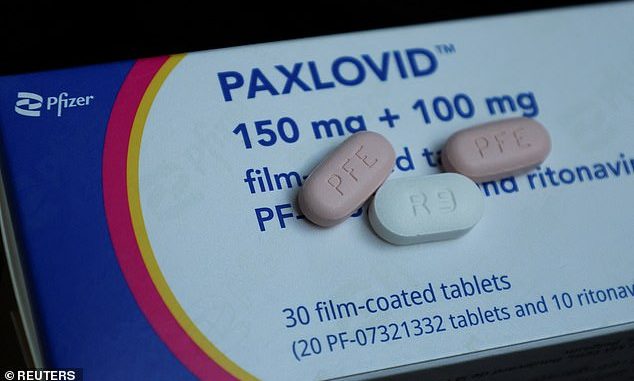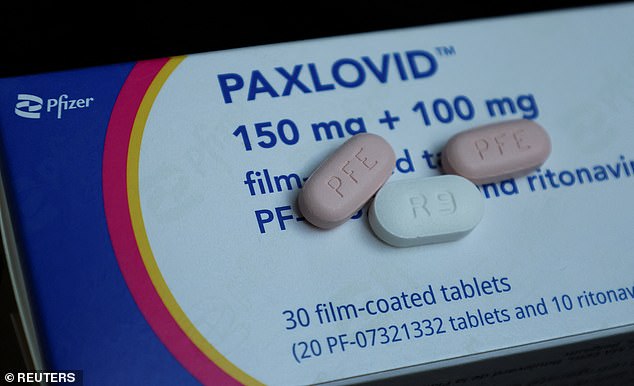Advertisement

Hope for long Covid sufferers as a new study will test Pfizer’s antiviral Paxlovid in patients who are left with persistent symptoms months later
- 100 people who have long had Covid symptoms for more than 3 months will take Paxlovid
- Researchers want to see if it helps with brain fog, fatigue and weakness
- 1 in 13 adults in the US has long-term Covid, and study results are expected next year
Paxlovid – an antiviral drug made by Pfizer – is now being considered as a possible long-term Covid treatment.
The pharma giant’s flagship Covid drug received emergency use approval in the US last December to treat high-risk patients – reducing their risk of death by 90 percent.
It’s currently the only drug you can take at home to treat Covid and has been given to millions of vulnerable Americans with underlying health conditions.
Now researchers at Stanford are about to start the first clinical trial of the drug to see if it can also help people who are still sick months and years after the virus was eliminated.
Previous research has shown that people given the drug are a quarter less likely to have long Covid – which most commonly causes severe fatigue, brain fog and muscle weakness.
So far there are no proven treatments for long Covid and no one knows what is causing the ongoing symptoms.
A popular theory is that residual virus in the body could wreak havoc. A recent study suggested that people with long Covid experience physical changes to their brains months after clearing the initial infection.
It is officially estimated that more than 15 million Americans have long been ill with Covid to varying degrees.

Study participants will take the antiviral drug 10 days longer than people usually take to see if it takes longer to work
The new study hopes to enroll 200 adults who have been negative for Covid for three months and still have symptoms.
Half of the participants will receive Paxlovid and the other half will receive a placebo.
To treat an infection, Paxlovid is given as six tablets a day for five days, but participants in the new study will take the drug for 15 days to test the theory that the drug needs more time to take full effect.
The results of the study are expected next year.
The first participant in the study was 67-year-old Bill Fimbres, from California, who has been suffering from long-term Covid symptoms for a year and a half, including loss of smell and taste, debilitating fatigue and brain fog.
He said, “It’s like you have someone else’s brain.”
Mr Fimbres will take his first dose of the drug or placebo on Monday.
He told NBC News, “If I could get rid of just one of my symptoms, that would be great. I just keep hoping.’
There is already evidence that Paxlovid may inhibit long-term symptoms.
A Department of Veterans Affairs study this month found those who received the drug immediately after their Covid diagnosis were 26 percent less likely to have persistent symptoms three months later than those who were not taking the antiviral.
However, the participants were all over the age of 60 and had additional health conditions, meaning the results may not apply to everyone.
Long Covid has puzzled scientists and doctors since it first appeared on their radar in 2020.
Its causes have not been established, but experts believe it may be related to the body’s immune response to the virus.
There have also been known cases of people experiencing long-term symptoms after suffering from more common viruses like the flu.
The CDC estimates that around 7.5 percent of American adults experience long-term Covid symptoms.
Those affected are usually younger than 50 years and mostly women. Reports of long Covid are most common in southern states like Kentucky and Alabama.

